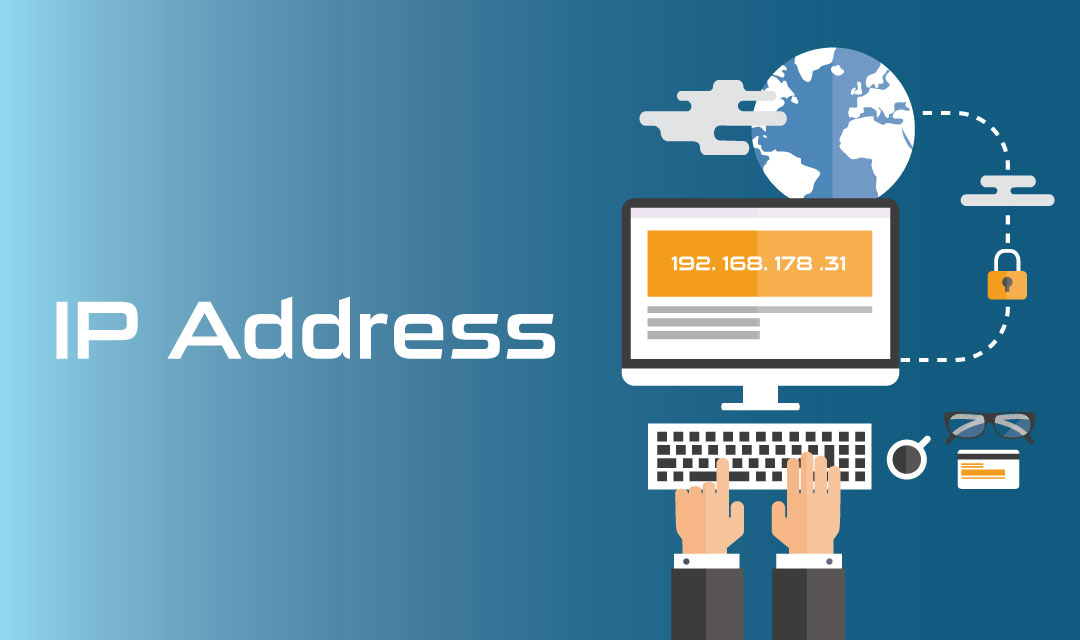Unveiling The Power Of IP Lookup: Navigating The Digital Landscape
Unveiling the Power of IP Lookup: Navigating the Digital Landscape
Related Articles: Unveiling the Power of IP Lookup: Navigating the Digital Landscape
Introduction
With great pleasure, we will explore the intriguing topic related to Unveiling the Power of IP Lookup: Navigating the Digital Landscape. Let’s weave interesting information and offer fresh perspectives to the readers.
Table of Content
Unveiling the Power of IP Lookup: Navigating the Digital Landscape

The internet, a vast and interconnected network, relies on a system of unique identifiers known as IP addresses. These addresses, akin to postal codes in the digital world, allow devices to communicate and exchange information. While seemingly abstract, IP addresses hold a wealth of information about the origin and location of internet traffic, making them crucial for various purposes. This is where IP lookup tools, often referred to as IP lookup maps, step in, offering a window into this digital landscape.
Understanding the Basics: What is an IP Lookup Map?
An IP lookup map, essentially a digital directory, provides detailed information associated with a specific IP address. This information can range from simple details like the geographical location of the IP address to more complex data such as the internet service provider (ISP), hostname, and even the type of network associated with the address.
The Essence of IP Lookup: A Deeper Dive
IP lookup maps are essentially databases containing vast amounts of information about IP addresses. These databases are constantly updated, ensuring the information provided is as accurate and up-to-date as possible. When a user enters an IP address into an IP lookup tool, the tool queries these databases and retrieves the associated information, presenting it in an easily understandable format.
Benefits of IP Lookup Maps: A Multifaceted Tool
IP lookup maps offer a wide range of benefits, making them invaluable tools across various domains:
- Network Security: Security professionals utilize IP lookup maps to identify potential threats and malicious actors. By tracing the origin of suspicious traffic, they can pinpoint the source of attacks and implement appropriate security measures.
- Network Management: Network administrators rely on IP lookup maps to monitor network performance, diagnose connectivity issues, and optimize network resources. Understanding the location and nature of traffic allows them to identify bottlenecks and implement necessary adjustments.
- Marketing and Advertising: Businesses leverage IP lookup maps to target their marketing campaigns based on geographical location. This allows them to tailor their messaging and reach the most relevant audience, maximizing campaign effectiveness.
- Geolocation Services: IP lookup maps are integral to geolocation services, which use IP addresses to determine the approximate location of users. This information is crucial for applications like weather forecasting, mapping services, and personalized recommendations.
- Fraud Detection: IP lookup maps play a crucial role in fraud detection by enabling the identification of fraudulent activities based on IP address patterns. This helps businesses and institutions mitigate financial losses and protect their customers.
Exploring the Functionality: How IP Lookup Maps Work
IP lookup maps utilize various techniques to retrieve information associated with an IP address. The most common methods include:
- Reverse DNS Lookup: This method uses the IP address to identify the corresponding domain name, which can provide clues about the owner or purpose of the IP address.
- Whois Database Queries: Whois databases store information about domain name registration, including the registrant’s contact details. IP lookup maps can access this information to identify the owner of the IP address.
- Geolocation Databases: These databases map IP addresses to geographical locations based on various factors, including network infrastructure and ISP information.
- IP Address Ranges: IP addresses are assigned in blocks, and IP lookup maps can use these ranges to identify the organization or ISP responsible for a specific IP address.
Navigating the Landscape: Types of IP Lookup Maps
IP lookup maps come in various forms, each catering to specific needs and functionalities:
- Free IP Lookup Tools: These tools are readily available online and offer basic information about IP addresses, such as geographical location and ISP.
- Paid IP Lookup Services: These services provide more comprehensive data, including detailed network information, historical data, and advanced security features.
- API-Based IP Lookup Services: These services offer programmatic access to IP lookup information, allowing developers to integrate IP lookup functionality into their applications.
- Internal IP Lookup Systems: Large organizations may develop their own internal IP lookup systems to manage and track IP addresses within their network.
FAQs: Addressing Common Questions
Q: What is the difference between an IP address and a domain name?
A: An IP address is a numerical identifier assigned to a device on a network, while a domain name is a human-readable label for a website or server. The domain name system (DNS) translates domain names into IP addresses, enabling users to access websites by their familiar names.
Q: How accurate are IP lookup maps?
A: The accuracy of IP lookup maps depends on various factors, including the quality of the data sources, the frequency of updates, and the dynamic nature of the internet. While generally accurate, it’s important to note that IP addresses can change, and information may not always be completely up-to-date.
Q: Are IP lookup maps legal?
A: The legality of using IP lookup maps depends on the specific purpose and context. While accessing publicly available information about IP addresses is generally considered legal, using IP lookup maps for malicious purposes, such as tracking individuals or breaching privacy, is illegal.
Q: How can I protect my privacy when using IP lookup maps?
A: To protect your privacy, it’s essential to use reputable IP lookup tools that prioritize user privacy. Avoid using tools that collect or store personal information without consent. Additionally, be aware of the information you share online, as it can be used to identify your IP address.
Tips for Effective IP Lookup:
- Choose reputable tools: Opt for IP lookup maps from trusted providers with a strong track record of accuracy and privacy.
- Verify information: Always verify the information provided by IP lookup maps against other sources to ensure its accuracy.
- Respect privacy: Use IP lookup maps responsibly and avoid using them for unethical or illegal purposes.
- Stay informed: Keep up-to-date with the latest developments in IP lookup technology and best practices.
Conclusion: Embracing the Power of IP Lookup
IP lookup maps are indispensable tools in today’s digital landscape, providing valuable insights into the internet’s complex network. From security professionals to marketers and network administrators, various individuals and organizations rely on IP lookup maps to navigate the digital world effectively. By understanding the intricacies of IP lookup maps and utilizing them responsibly, individuals and organizations can leverage their power to enhance security, optimize performance, and make informed decisions in the digital age.








Closure
Thus, we hope this article has provided valuable insights into Unveiling the Power of IP Lookup: Navigating the Digital Landscape. We thank you for taking the time to read this article. See you in our next article!